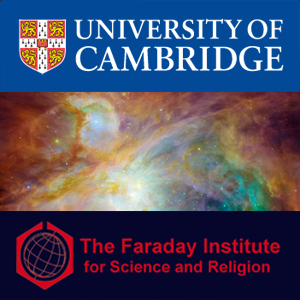Forgiveness, gratitude and hope in psychology and theology
Duration: 1 hour 15 mins
Share this media item:
Embed this media item:
Embed this media item:
About this item

| Description: | Talk given by Dr Liz Gulliford as part of short course 32 (The Believing Brain) |
|---|
| Created: | 2016-01-28 15:53 |
|---|---|
| Collection: | Faraday Institute Lectures |
| Publisher: | Faraday Institute |
| Copyright: | Faraday Institute |
| Language: | eng (English) |
| Keywords: | forgiveness; gratitude; hope; psychology; theology; brain; brain; faith; Gulliford; science; religion; |
| Abstract: | This paper examines different emphases in psychological and theological understandings of forgiveness, gratitude and hope. Psychology generally focuses on individuals extending forgiveness to others (for emotional repair). Theology construes forgiveness collectively, as a power in which people participate as givers and receivers. Psychology emphasises gratitude’s important role in amplifying subjective well-being (happiness) in the grateful person, which has arguably led to an instrumentalist focus on gratitude within psychology. Psychologically, hope and optimism are cast as internal, cognitive processes grounded in confidence based on self-control and beliefs about personal agency. This neglects collective dimensions of hope accentuated in theology, where hope is sustained in relation to other agents and grounded in the confidence of trust. |
|---|---|
Available Formats
| Format | Quality | Bitrate | Size | |||
|---|---|---|---|---|---|---|
| MPEG-4 Video | 960x720 | 2.98 Mbits/sec | 1.64 GB | View | Download | |
| MPEG-4 Video | 480x360 | 1.92 Mbits/sec | 1.06 GB | View | Download | |
| WebM | 960x720 | 2.53 Mbits/sec | 1.39 GB | View | Download | |
| WebM | 480x360 | 689.19 kbits/sec | 378.58 MB | View | Download | |
| iPod Video | 480x360 | 487.47 kbits/sec | 267.78 MB | View | Download | |
| MP3 | 44100 Hz | 252.82 kbits/sec | 138.88 MB | Listen | Download | |
| Auto * | (Allows browser to choose a format it supports) | |||||

